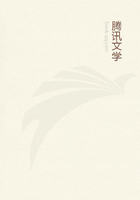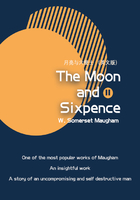Kaiser Karl and his Empress, in this summer of 1732, were at Karlsbad, taking the waters for a few weeks. Friedrich Wilhelm, who had long, for various reasons, wished to see his Kaiser face to face, thought this would be a good opportunity. The Kaiser himself, knowing how it stood with the Julich-and-Berg and other questions, was not anxious for such an interview; still less were his official people; among whom the very ceremonial for such a thing was matter of abstruse difficulty. Seckendorf accordingly had been instructed to hunt wide, and throw in discouragements, so far as possible;--which he did, but without effect. Friedrich Wilhelm had set his heart upon the thing; wished to behold for once a Head of the Holy Roman Empire, and Supreme of Christendom;--also to see a little, with his own eyes, into certain matters Imperial.
And so, since an express visit to Karlsbad might give rise to newspaper rumors, and will not suit, it is settled, there shall be an accidental intersection of routes, as the Kaiser travels homeward,--say in some quiet Bohemian Schloss or Hunting-seat of the Kaiser's own, whither the King may come incognito; and thus, with a minimum of noise, may the needful passage of hospitality be done. Easy all of this: only the Vienna Ministers are dreadfully in doubt about the ceremonial, Whether the Imperial hand can be given (I forget if for kissing or for shaking)?--nay at last they manfully declare that it cannot be given; and wish his Prussian Majesty to understand that it must be refused. [Forster, i. 328.]
"RES SUMMAE CONSEQUENTIAE," say they; and shake solemnly their big wigs.--Nonsense (NARRENPOSSEN)! answers the Prussian Majesty:
You, Seckendorf, settle about quarters, reasonable food, reasonable lodgings; and I will do the ceremonial.
Seckendorf--worth glancing into, for biographical purposes, in this place--has written to his Court: That as to the victual department, his Majesty goes upon good common meat; flesh, to which may be added all manner of river-fish and crabs: sound old Rhenish is his drink, with supplements of brown and of white beer.
Dinner-table to be spread always in some airy place, garden-house, tent, big clean barn,--Majesty likes air, of all things;--will sleep, too, in a clean barn or garden-house: better anything than being stifled, thinks his Majesty. Who, for the rest, does not like mounting stairs. [Seckendorf's Report (in Forster, i. 330).]
These are the regulations; and we need not doubt they were complied with.
Sunday, 27th July, 1732, accordingly, his Majesty, with five or six carriages, quits Berlin, before the sun is up, as is his wont:
eastward, by the road for Frankfurt-on-Oder; "intends to look at Schulenburg's regiment," which lies in those parts,--Schulenburg's regiment for one thing: the rest is secret from the profane vulgar. Schulenburg's regiment (drawn up for Church, I should suppose) is soon looked at; Schulenburg himself, by preappointment, joins the travelling party, which now consists of the King and Eight:--known figures, seven, Buddenbrock, Schulenburg, Waldau, Derschau, Seckendorf; Grumkow, Captain Hacke of the Potsdam Guard; and for eighth the Dutch Ambassador, Ginkel, an accomplished knowing kind of man, whom also my readers have occasionally seen. Their conversation, road-colloquy, could it interest any modern reader? It has gone all to dusk; we can know only that it was human, solid, for most part, and had much tobacco intermingled. They were all of the Calvinistic persuasion, of the military profession; knew that life is very serious, that speech without cause is much to be avoided. They travelled swiftly, dined in airy places: they are a FACT, they and their summer dust-cloud there, whirling through the vacancy of that dim Time; and have an interest for us, though an unimportant one.
The first night they got to Grunberg; a pleasant Town, of vineyards and of looms, across the Silesian frontier. They are now turning more southeastward; they sleep here, in the Kaiser's territory, welcomed by some Official persons; who signify that the overjoyed Imperial Majesty has, as was extremely natural, paid the bill everywhere. On the morrow, before the shuttles awaken, Friedrich Wilhelm is gone again; towards the Glogau region, intending for Liegnitz that night. Coursing rapidly through the green Silesian Lowlands, blue Giant Mountains (RIESENGEBIRGE)beginning to rise on the southwestward far away. Dines, at noon, under a splendid tent, in a country place called Polkwitz, ["Balkowitz," say Pollnitz (ii. 407) and Forster; which is not the correct name.] with country Nobility (sorrow on them, and yet thanks to them) come to do reverence. At night he gets to Liegnitz.
Here is Liegnitz, then. Here are the Katzbach and the Blackwater (SCHWARZWASSER), famed in war, your Majesty; here they coalesce;gray ashlar houses (not without inhabitants unknown to us) looking on. Here are the venerable walls and streets of Liegnitz; and the Castle which defied Baty Khan and his Tartars, five hundred years ago. [1241, the Invasion, and Battle here, of this unexpected Barbarian.]--Oh, your Majesty, this Liegnitz, with its princely Castle, and wide rich Territory, the bulk of the Silesian Lowland, whose is it if right were done? Hm, his Majesty knows full well;in Seckendorf's presence, and going on such an errand, we must not speak of certain things. But the undisputed truth is, Duke Friedrich II., come of the Sovereign Piasts, made that ERBVERBRUDERUNG, and his Grandson's Grandson died childless:















